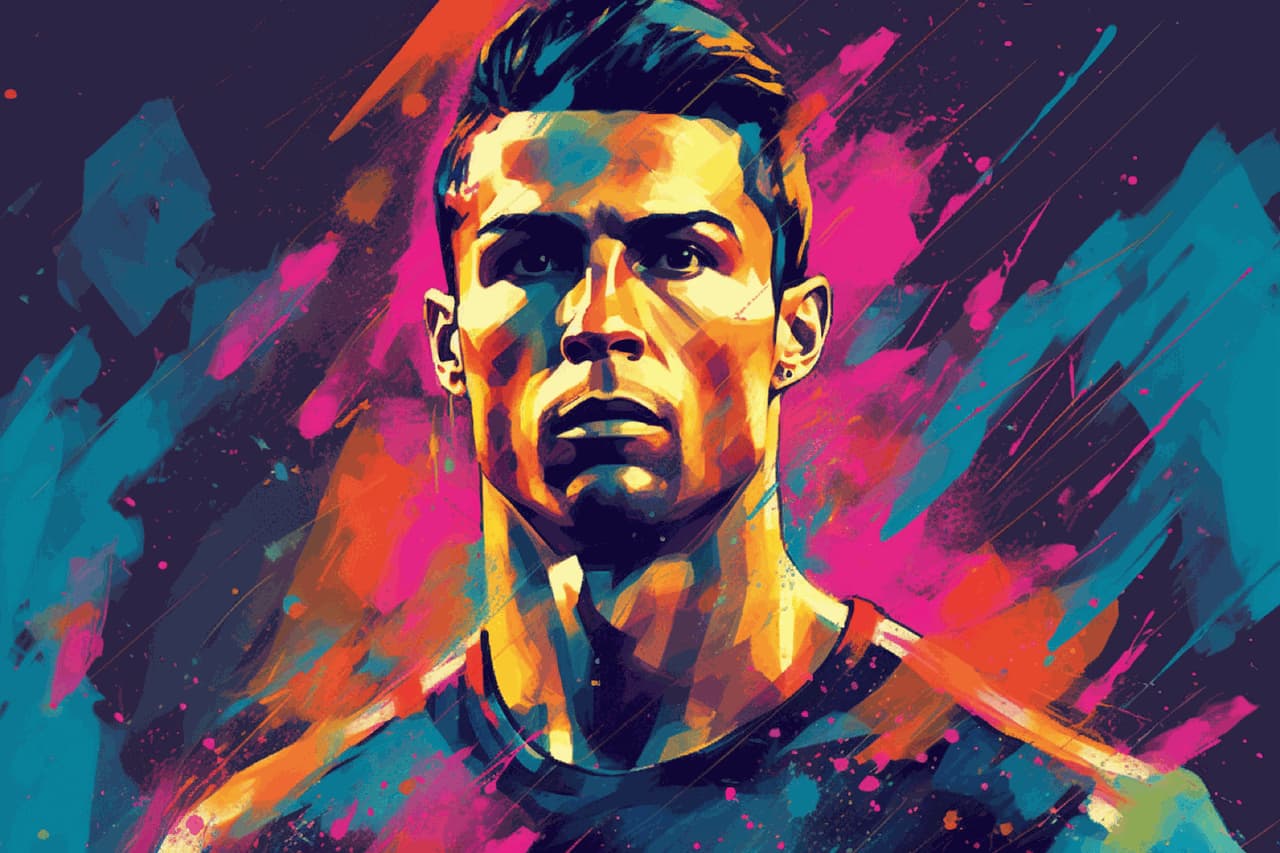Cristiano Ronaldo is considered one of the best football players in the world and is known for his exceptional fitness and discipline. His training schedule and dedication to the sport are legendary. But how often does Cristiano Ronaldo actually train per day? In this article, we give a detailed overview of his training program and analyze what it takes to be successful at this level.
Why is Cristiano Ronaldo's training so important?
Cristiano Ronaldo is not only known for his talent, but above all for his hard work and dedication on and off the pitch. His training plan is geared towards the highest possible performance and includes various aspects such as technique, endurance, strength, speed and recovery. This comprehensive approach has helped him to play at the highest level for many years and to make his career a success.
How often does Cristiano Ronaldo train per day?
Cristiano Ronaldo usually trains two to three times a day. This is a mixture of team training, individual training and regenerative units. The exact amount of training varies depending on the competition calendar, game intensity and physical condition. Here is a rough breakdown:
-
Team training: This training usually takes place once a day and lasts between 1.5 and 2 hours. It includes technical and tactical exercises, game forms and occasionally conditioning elements.
-
Individual training: Ronaldo is known for taking extra sessions to work on his specific skills. These can take place before or after team training and often include drills to improve technique, shooting practice or targeted strength training.
-
Regeneration and mobility: In addition to the intensive training sessions, Ronaldo attaches great importance to regeneration measures. These include stretching exercises, massages, cold therapy and occasional light exercise sessions that promote regeneration.
What does Cristiano Ronaldo's training involve?
1. Strength training:
Ronaldo incorporates strength training into his training plan several times a week. This training is not only aimed at building muscle, but also at improving his stability and mobility. Common exercises include squats, lunges, bench presses and core training. He places great emphasis on execution and adjusts the intensity depending on the phase of the season.
2. Speed and agility:
An important part of Ronaldo's training is improving his speed and agility. This includes sprints, jumping exercises and specific running technique exercises. These units are short and intense and are often carried out in combination with ball exercises.
3. Technique training:
Even though Ronaldo is considered one of the best dribblers and shooters in the world, he is constantly working on his technique. Technique training includes free kicks, dribbling, shooting from different positions and targeted passing exercises. He often uses rebounders or special training equipment to further improve his precision.
4. Endurance training:
Ronaldo regularly does intense endurance running and interval training to maintain his fitness at a high level, varying the workload to improve both aerobic and anaerobic capacity. This training helps him maintain a consistently high intensity throughout the game.
5. Regeneration and mental training:
In addition to physical training, Ronaldo is also known for his discipline when it comes to regeneration. Ice baths, massages, stretching exercises and sleep are part of his regular regeneration plan. He also relies on mental training to improve his concentration and mental strength.
What role does nutrition play?
In addition to training, Ronaldo attaches great importance to his diet. He consumes five to six protein-rich meals a day to maintain his muscle mass and optimize his performance. The diet is supplemented with nutritional supplements such as proteins, vitamins and minerals to promote recovery and meet the high demands of his training schedule. At 360Football Supplements, we also offer special supplements for footballers.
How often does Cristiano Ronaldo train during the season?
During the season, Ronaldo trains almost daily, with the intensity varying depending on the match schedule. Before a match, he reduces the volume of training to ensure he is rested and in top shape. On non-match days, he may do two training sessions to work on specific aspects of his game.
How often does Cristiano Ronaldo train in the off-season?
In the off-season, when there are no games, Ronaldo reduces the volume of training to give his body time to recover. However, he still stays active and trains around five to six times a week. Training in the off-season is more varied and also includes other sports such as swimming, tennis or cycling to keep motivation high and minimize the risk of injury.
Why is his training plan so effective?
Ronaldo combines different forms of training to keep his physical performance at a consistently high level. He varies his units and continually adapts them to his needs. In addition, his mental strength plays a crucial role, as he is always looking for new challenges and setting high goals for himself.
What can we learn from Cristiano Ronaldo's training?
-
Discipline: Ronaldo shows that success in football requires not only talent, but above all hard work. His discipline is a role model for everyone who wants to be successful in sport.
-
Individuality: Every training session should be tailored to the individual needs and goals of the player. Ronaldo knows exactly what he needs to work on and adapts his training accordingly.
-
Regeneration: Sufficient recovery phases are crucial for long-term success. Even though the training is intensive, Ronaldo places great emphasis on regeneration and prevention.
-
Holistic approach: An effective training plan includes not only physical training, but also nutrition, regeneration and mental strength. Ronaldo shows that only the combination of these elements leads to top performance.
Conclusion
Cristiano Ronaldo's training plan is a prime example of discipline, dedication and efficiency. With one or two training sessions a day, supplemented by regeneration and a strict diet, he manages to play at the highest level and continually improve. For anyone who wants to learn more about professional training in football, his example can be a great inspiration.


